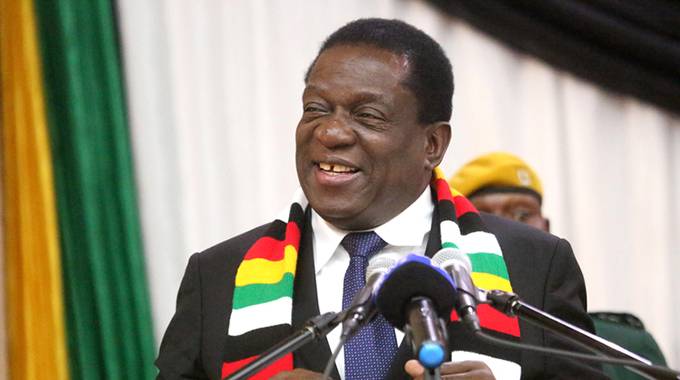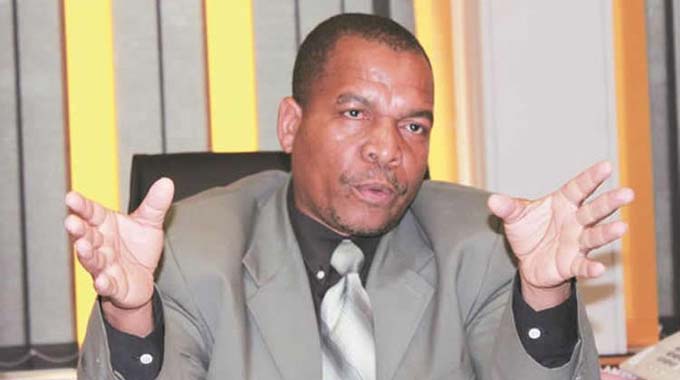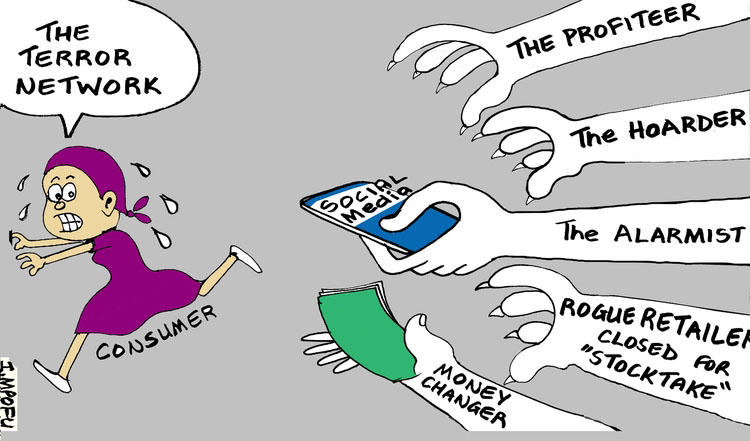EDITORIAL COMMENT: ED’s tax reform support shows leadership

OVER the past week there have been attempts to blackmail and intimidate the Executive after the announcement of a 2 cents transaction charge per dollar.
This came in the form of claiming divisions between President Mnangagwa and Finance and Economic Development Minister Prof Mthuli Ncube over the tax and threats of street protests. On Monday, the President stood firm.
President Mnangagwa was as bold and as a candid as they come when he addressed a Proweb breakfast meeting in Harare, indicating he was taking no prisoners on the issue of economic reforms and that while the prescriptions have all the making of the IMF and the World Bank, he wasn’t banking on the Bretton Woods institutions’ largesse to resolve Zimbabwe’s economic woes by seeking more debt. Zimbabwe must bear the burden of its own recovery.
President Mnangagwa showed he would not be blackmailed or intimidated by backing his Finance Minister to heel on the reforms. He completely ignored threats of demonstrations by labour unions, especially teachers, obviously doing the bidding of MDC-Alliance leader Nelson Chamisa who is worshipped in the private media as some voodoo economic messiah.
The President stated that the aim of the reforms was “to please the economy, not the individual”. He was clearly mindful of the pain the reforms would cause to the poor, but that this was unavoidable in the short-term — no pain, no gain.
There have been opportunistic attacks that Government is taxing everyone to pay for debts it created alone. This is disingenuous as it ignores the effects of decades of sanctions since Zimbabwe embarked on land reform in 2000. It ignores the fact that many companies have closed down as a result of the same sanctions, and that over the years Zimbabwe has accumulated debts to import essentials. But the President did not want to waste time on that historical baggage when he wasn’t in charge of the Executive.
The difference is that he has decided Zimbabwe must move beyond hostage politics. He has acknowledged that the country is in debt to the tune of $16,9 billion, that is the combined internal and external debt.
He told the Proweb meeting on Monday; “We need productivity for us to earn the foreign currency which we can use to modernise and retool both industry and commerce. It cannot come from anywhere, but from productivity.”
This is important to emphasise. Often when Zimbabweans talk about economic or political reforms they have their mind on global sentiment. They are hoping for consumptive loans from the World Bank and IMF, hence the obsession with US currency in personal bank accounts. Unfortunately that has been partly the source of our current unsustainable foreign debt.
So President Mnangagwa is clear: the foreign currency must be earned through productivity, not borrowings. We cannot afford to grow further that foreign debt to indulge individual appetites for foreign luxuries.
But productivity is not all about earning foreign currency. It means we must produce our own food and raw materials for local industry. That way we reserve foreign currency for key essentials like medicines, fuel and greater industrial productivity.
Minister Mthuli Ncube has also been very clear that he is keen to curtail Government expenditure. Not only that; he is also working to reduce the public debt. We believe a new tax, Government spending cuts and debt reduction can be operationalised concurrently.
The new tax, especially on the huge and flourishing informal sector, should raise money for Government to meet its recurrent expenditure without new borrowing locally. It can use part of the money to retire its public debt. The rationalisation of the civil service and privatisation, commercialisation and disposal of State-owned enterprises should also reduce the Government bill.
It is a comprehensive cocktail to which patriotic Zimbabweans can contribute and refine in the course of implementation.
That this modest tax can cause the Government to become unpopular is no more than blackmail, an old tactic of a myopic opposition and its media alliance who have been feeding the nation the myth that Chamisa’s narcissistic politics is the solution to Zimbabwe’s economic challenges.
To ED we repeat the axiom that a good leader does what the people want; a great leader does what ought to be done.
Great leadership began with taking our land back. Now is the time to grow our economy. That is how to build a legacy.









Comments